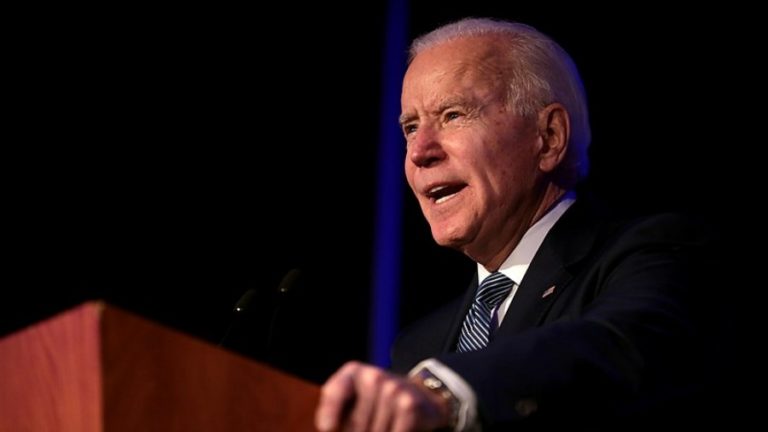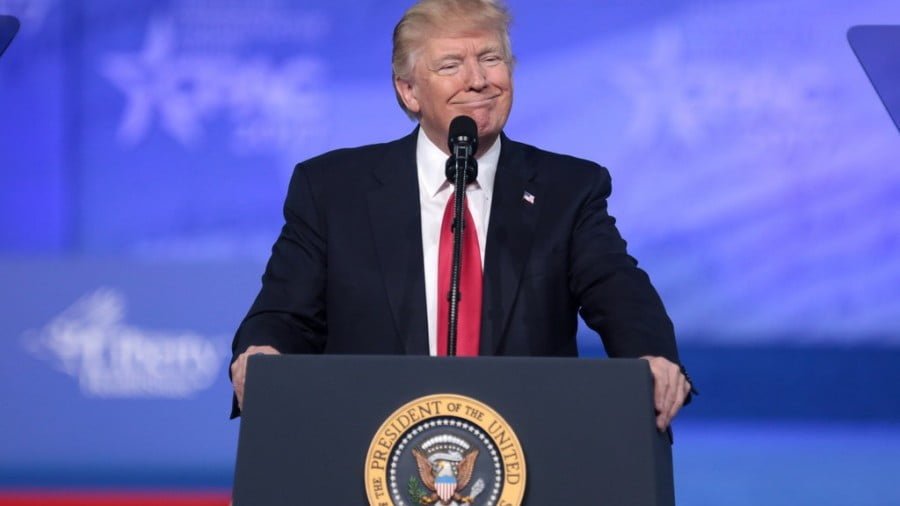How Economists Tricked Us Into Thinking Capitalism Works
These days, it seems like someone is always trying to privatize something. One day it’s the Trump administration contemplating the privatization of the Department of Veterans Affairs. The next it’s the Tories looking to sell off the U.K.’s National Health Service, or economists promoting “market-based” solutions to the climate crisis. In this age of neoliberalism, the rallying cry for politicians and economists alike is always for “More privatization! More markets! Sell it all off to the private sector!”
Of course, much of the time this faith in the market is used as a cover by those looking to simply make a profit — or by the politicians representing their interests. But this is not always the case. There are many who actually believe, wholeheartedly, that markets are the most efficient and even the most ethical way to run a society. And because this is the worldview that is taught in the vast majority of economics departments throughout the world, it’s not surprising that this is the dominant worldview among those in power.
It’s an ideology that was carefully crafted during the time of the early Western economists like Adam Smith and David Ricardo. Homo sapiens are actually Homo economicus, the theory goes: selfish, competitive, rational agents who are all constantly seeking to efficiently maximize their own personal well-being.
No need to despair, however, because economists have figured out that these inherent traits can actually be utilized for good, through a social relation known as the market. By its nature, the market encourages competition and efficiency, and thus, by relying on the self-maximizing behavior of individuals, market capitalism is the only economic system that truly accepts human nature for what it is. And in fact, it’s the only system uniquely situated to actually channel this nature into a net positive outcome for society.
How does this all work? Well, when they are free to make choices that maximize their own interests, people in a market system negotiate on a price and quantity of a product or service until a sort of equilibrium is established. It’s a natural process of compromise that leaves everyone satisfied and also leads to an efficient way of producing and distributing goods and services. Everyone wins. And, the theory goes, it just so happens that the process aligns perfectly with human nature. It’s a fascinating theory. The only thing is, it’s completely wrong.
The foundation of this theory relies on an assumption about human nature that has been discredited over and over by research across multiple scientific disciplines. It turns out that Homo economicus is a fairytale, an outdated misconception, a gross distortion of reality. Yet, it still serves as the theoretical foundation of our entire economic system.Research shows that by 14 months of age, children are already beginning to help each other by handing over objects that others are unsuccessfully reaching for.
Studies have determined that the Homo economicus personality is an extremely rare one. Instead, most humans are marked by a deep capacity for reciprocity, cooperation and selflessness. For example, research shows that by 14 months of age, children are already beginning to help each other by handing over objects that others are unsuccessfully reaching for. This empathic behavior only increases as children grow older and begin to share things that they value with others and even object to other people’s violation of social norms.
These are all early signs of prosociality — behavior that is marked by an intent to help or benefit others. And importantly, this behavior is motivated by a genuine concern for others and not by selfishness.
Evolutionary biologists have also largely debunked the theory of Homo economicus. Researchers like David Sloan Wilson and others have determined that more prosocial groups will robustly outcompete less prosocial groups, meaning that prosociality was an advantageous trait when it came to the natural selection of early humans. And these theories are not new. Over a century ago, the anarchist theorist Peter Kropotkin wrote convincingly on how the survival of our species has depended more on cooperation than on the heroic efforts of isolated individuals. It certainly is difficult imagining an early human taking down a woolly mammoth without engaging in highly coordinated prosocial behavior. How else could the human species evolve to dominate the globe if not by cooperating with one another to overcome the many challenges our species faced?Another place where we see the myth of Homo economicus debunked is in the research that comes out of post-disaster communities.
Another place where we see the myth of Homo economicus debunked is in the research that comes out of post-disaster communities. In her landmark book, A Paradise Built in Hell, Rebecca Solnit presents a thesis arguing that humans have an innate capacity toward collectivism — and that these traits tend to reveal themselves most strongly in community response to disasters. Far from resorting to antisocial behavior after a disaster (a myth which the media tend to elevate), Solnit’s book outlines enumerable instances where communities demonstrate prosocial behaviors like cooperation, solidarity, sacrifice and generosity instead.
“In the wake of an earthquake, a bombing, or a major storm, most people are altruistic, urgently engaged in caring for themselves and those around them, strangers and neighbors as well as friends and loved ones,” Solnit writes. “Decades of meticulous sociological research on behavior in disasters, from the bombings of World War II to floods, tornadoes, earthquakes, and storms across the continent and around the world, have demonstrated this.”
Yet, despite the overwhelming evidence contradicting it, we’ve come to accept Homo economicus as the truth. Perhaps not always consciously, but it haunts our dreams, our imagination. It confines our sense of possibility and imposes boundaries as arbitrary as those that carve up ecosystems and communities into nation-states.
Market capitalism has been imposed onto us, often at the point of a gun, and as a result, we’ve been forced to internalize the idea that we are a selfish, competitive and greedy species. Well, that’s just human nature, we’ll acquiesce when we hear about the profiteering of pharmaceutical companies or the greed of investment bankers. But the thing this, that’s not human nature — it’s just what we’ve been coerced into thinking by an unfeeling economic system that dominates every facet of our life. And in many ways, Homo economicus is a self-fulfilling prophecy.Market capitalism has been imposed onto us, often at the point of a gun, and as a result, we’ve been forced to internalize the idea that we are a selfish, competitive and greedy species.
It’s been demonstrated that studying economics actually makes you more selfish. Studies have shown that economics students are much less likely than other students to donate money that was given to them into a common pool; that they are more likely to “freeride” and are also more likely to defect than to cooperate; that they are more likely to participate in deception for personal gain; and even that they are more likely than their peers to rate greed as “generally good,” “correct” and “moral.”
And it’s not just students: economics professors give less money to charity than professors in other fields — including history, philosophy, education, psychology, sociology, anthropology, literature, physics, chemistry and biology.
When faced with the overwhelming evidence that Homo economicus — and thus the whole neoclassical economic project — is nonsense, the defenders of the status quo tend to rely on another myth: that there is no alternative. Margaret Thatcher famously uttered those words over 30 years ago, paving the way for an age of neoliberalism that has seen the dismantling of the social safety net, the stagnation of wages and the rise of extreme inequality.
But the thing is, there are alternative ways of organizing society that reflect the human capacity for reciprocity, selflessness and cooperation. The worker cooperative model promotes equity and democracy by giving workers ownership and control over their workplaces. It does so in a way that not only aligns with our inherently human traits, but in a way which has been shown to be more efficient and productive than the traditional workplace models.There are alternative ways of organizing society that reflect the human capacity for reciprocity, selflessness and cooperation.
There is also the commons model that reflects how communities organized themselves for thousands of years before they were torn off their land in the enclosure acts of 17th-century England. The commons are a way of organizing production and distribution where resources are held in common and are accessible to every member of society to be managed collectively for the benefit of all.
In fact, the political economist Eleanor Ostrom actually won the Nobel Prize in Economics in 2009 for disproving the long-held belief known as the “tragedy of the commons,” a theory which held that resources held in common by communities would naturally be overused and depleted. Ostrom’s work demonstrated that this assumption is false, and that it is in fact very possible for resources to be managed collectively without privatization.
There are many ways that community resources can be collectivized instead of privatized, from land trusts that take land off of the market to policy proposals like Medicare for All, which represents a major shift in how we view our collective responsibility when it comes to health care, or the Green New Deal, which recognizes our collective responsibility to prioritize climate justice in the fight against climate change.
The alternatives to market capitalism are out there — and the thing is, they actually align much more closely to the natural human tendencies toward reciprocity and sharing. The theories behind modern economics have left us with a burning planet and with skyrocketing inequality — it’s time to put them to rest.
And whether economists and politicians choose to accept it or not, the days of Homo economicus are limited, because a society based off of a lie cannot go on indefinitely.
By Robert R. Raymond
Source: Truth Out







